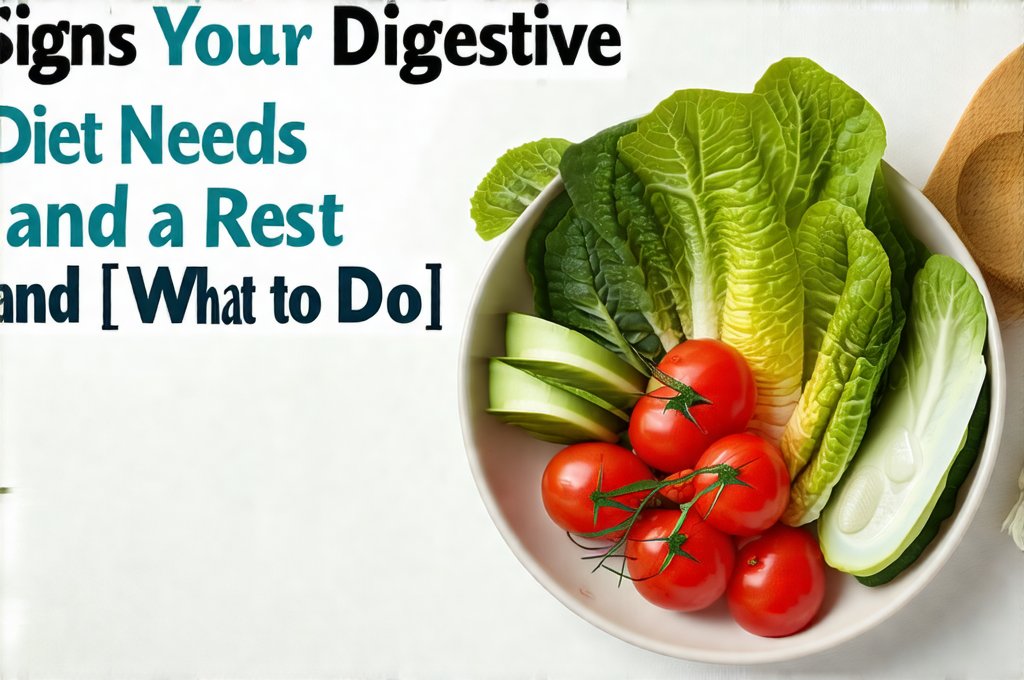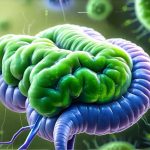Our digestive system is often an unsung hero, quietly working away in the background to process the food we eat and provide our bodies with essential nutrients. However, when this complex system becomes overloaded or imbalanced, it can lead to a range of uncomfortable symptoms – bloating, gas, fatigue, even skin issues. Many of us live with these kinds of digestive complaints as ‘normal,’ accepting them as unavoidable parts of life. But persistent digestive discomfort is rarely normal; it’s usually a signal that something needs attention and potentially, a reset for your dietary habits. Ignoring these signals can impact not just physical wellbeing but also mental health, energy levels, and overall quality of life.
The good news is that you can take control of your digestive health. Often, simple adjustments to what you eat – and how you eat it – can make a world of difference. This isn’t about restrictive dieting or eliminating entire food groups; rather, it’s about understanding the connection between your diet and your gut, identifying potential triggers, and adopting strategies that support optimal digestion. A ‘digestive reset’ is less about a quick fix and more about building sustainable habits for long-term health. It’s a chance to re-evaluate your relationship with food and learn how to nourish your body in a way that feels good from the inside out.
Understanding Your Gut & Diet Connection
The digestive system isn’t just a passive processor of food; it’s a complex ecosystem teeming with trillions of microorganisms – bacteria, viruses, fungi, and other microbes collectively known as the gut microbiome. This microbiome plays a crucial role in everything from nutrient absorption to immune function and even mental health. What we eat directly impacts the composition of this microbial community. A diet rich in processed foods, sugar, and unhealthy fats can disrupt the delicate balance of the gut microbiome, leading to an overgrowth of harmful bacteria and a decrease in beneficial ones. Conversely, a diet abundant in fiber-rich fruits, vegetables, and fermented foods supports a diverse and healthy microbiome.
When your gut microbiome is out of sync, it can manifest as digestive symptoms like bloating, gas, constipation, or diarrhea. But the effects aren’t limited to the digestive tract. An imbalanced gut can contribute to systemic inflammation, which has been linked to a wide range of chronic diseases. Furthermore, the gut-brain axis – the bidirectional communication pathway between the gut and the brain – means that gut health directly influences mood, cognitive function, and stress levels. Therefore, addressing dietary imbalances is fundamental for improving overall wellbeing. If you suspect your microbiome needs attention, consider reading your gut to learn more.
A key element often overlooked is how we eat, not just what we eat. Rushing through meals, eating on the go, or being distracted while dining can all impair digestion. Proper chewing breaks down food into smaller particles, making it easier for enzymes to do their job. Eating in a relaxed state allows your body to switch into ‘rest and digest’ mode, optimizing digestive processes. Stress inhibits digestion, so creating a calm and mindful eating environment is crucial. If you experience frequent acid reflux, learn what to do after a flare-up.
Signs Your Digestive Diet Needs a Reset
Identifying the signs that your digestive diet needs attention is the first step toward restoring balance. These signals can range from mild discomfort to more debilitating symptoms. One of the most common indicators is chronic bloating – feeling consistently full or uncomfortable after meals, even if you haven’t eaten much. This isn’t the occasional bloat after a particularly salty meal; it’s persistent and disruptive. Frequent gas, heartburn, constipation, diarrhea, or alternating between these symptoms are also red flags.
Beyond the obvious digestive complaints, other more subtle signs can indicate a gut imbalance. Skin problems such as acne, eczema, or psoriasis can be linked to inflammation caused by an unhealthy gut. Fatigue, even after adequate sleep, and difficulty concentrating may suggest that your body is spending too much energy on digestion and not enough on other essential functions. Food sensitivities – experiencing reactions like headaches, skin rashes, or digestive upset after eating certain foods – are another indicator. It’s important to note that food sensitivities are different from allergies; they are often more subtle and can be harder to identify without careful observation. Finally, a weakened immune system, with frequent colds or infections, can also be linked to gut health, as a significant portion of the immune system resides in the digestive tract. If you feel worse when starting probiotics, here’s what to do.
Identifying Trigger Foods & Dietary Patterns
Pinpointing which foods contribute to your digestive issues requires some detective work. A food diary is an excellent starting point. For a week or two, meticulously record everything you eat and drink, along with any associated symptoms – bloating, gas, fatigue, etc. This can help identify patterns and potential trigger foods. Consider keeping track of the timing of your symptoms in relation to meals.
- Elimination Diet: A more structured approach is an elimination diet. This involves temporarily removing common trigger foods from your diet (such as gluten, dairy, soy, sugar, caffeine) for a period of time (typically 2-3 weeks) and then reintroducing them one at a time to observe any reactions. It’s crucial to do this under the guidance of a healthcare professional.
- Focus on Whole Foods: Prioritize whole, unprocessed foods as much as possible. Reduce your intake of processed foods, sugary drinks, and unhealthy fats.
- Fiber Intake: Ensure you are getting enough fiber from fruits, vegetables, and whole grains. Fiber promotes healthy digestion and feeds beneficial gut bacteria.
The Role of Fermented Foods & Probiotics
Fermented foods – yogurt (with live cultures), kefir, sauerkraut, kimchi, kombucha, miso – are naturally rich in probiotics, which are live microorganisms that can benefit your gut health. Incorporating these foods into your diet can help restore balance to the gut microbiome and improve digestion. However, start slowly, as introducing too many probiotics at once can sometimes cause temporary digestive upset.
- Probiotic Supplements: Probiotic supplements can also be helpful, but it’s important to choose a high-quality supplement with strains that have been clinically proven to benefit gut health. Again, consulting a healthcare professional is recommended to determine the best probiotic for your individual needs. If you are questioning if your probiotic is working, this can help.
- Prebiotics as Food for Probiotics: Prebiotics are types of fiber that feed beneficial bacteria in the gut. Foods rich in prebiotics include garlic, onions, leeks, asparagus, bananas, and oats. Combining probiotics with prebiotics (a synergistic effect called synbiotic) can further enhance gut health. Did you know your gut may need more resistant starch as well?
Mindful Eating Practices for Optimal Digestion
Cultivating mindful eating habits is a powerful way to support your digestive system. Start by creating a calm and relaxed environment when you eat. Turn off the TV, put away your phone, and focus on enjoying your meal. Take small bites, chew thoroughly, and savor each mouthful. Pay attention to your body’s hunger and fullness cues – eat when you’re hungry and stop when you’re satisfied, not overly full.
- Hydration is Key: Drink plenty of water throughout the day, especially before, during, and after meals. Water aids in digestion and helps prevent constipation.
- Stress Management: Incorporate stress-reducing techniques into your daily routine – yoga, meditation, deep breathing exercises – as chronic stress can negatively impact digestion.
- Regular Meal Times: Establishing regular meal times helps regulate your digestive system and promotes consistent gut function.
If you suspect your gut needs a reset, this is a great place to start.
It’s important to remember that a ‘digestive reset’ is not a one-size-fits-all approach. What works for one person may not work for another. Listen to your body, be patient with the process, and don’t hesitate to seek guidance from a healthcare professional if you have concerns or persistent digestive issues. Prioritizing gut health isn’t just about alleviating symptoms; it’s about investing in your overall wellbeing and building a foundation for long-term vitality. Signs your gut needs a diet reset can be subtle but important to recognize.


















